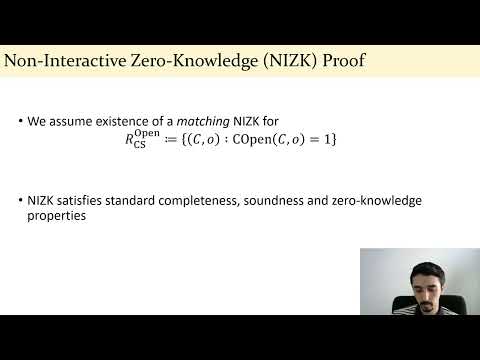CryptoDB
Efficient Verifiable Partially-Decryptable Commitments from Lattices and Applications
| Authors: |
|
|---|---|
| Download: | |
| Conference: | PKC 2022 |
| Abstract: | We introduce verifiable partially-decryptable commitments (VPDC), as a building block for constructing efficient privacy-preserving protocols supporting auditability by a trusted party. A VPDC is an extension of a commitment along with an accompanying proof, convincing a verifier that (i) the given commitment is well-formed and (ii) a certain part of the committed message can be decrypted using a (secret) trapdoor known to a trusted party. We first formalize VPDCs and then introduce a general decryption feasibility result that overcomes the challenges in relaxed proofs arising in the lattice setting. Our general result can be applied to a wide class of Fiat-Shamir based protocols and may be of independent interest. Next, we show how to extend the commonly used lattice-based `Hashed-Message Commitment' (HMC) scheme into a succinct and efficient VPDC. In particular, we devise a novel `gadget'-based Regev-style (partial) decryption method, compatible with efficient relaxed lattice-based zero-knowledge proofs. We prove the soundness of our VPDC in the setting of adversarial proofs, where a prover tries to create a valid VPDC output that fails in decryption. To demonstrate the effectiveness of our results, we extend a private blockchain payment protocol, MatRiCT, by Esgin et al. (ACM CCS '19) into a formally auditable construction, which we call MatRiCT-Au, with very low communication and computation overheads over MatRiCT. |
Video from PKC 2022
BibTeX
@inproceedings{pkc-2022-31706,
title={Efficient Verifiable Partially-Decryptable Commitments from Lattices and Applications},
publisher={Springer-Verlag},
author={Muhammed F. Esgin and Ron Steinfeld and Raymond K. Zhao},
year=2022
}

